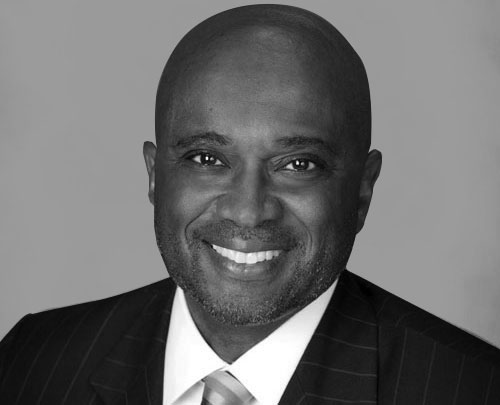
Zenith’s Interim President Leads With an Open Door
CER Interview With Troy A. Stovall, Interim President, Zenith Education Group
Q: Tell our readers a little about your background.
A: I was blessed to have a mom — a single mom — who put education first for my sister and me. As a result, I had the good fortune of attending some fine institutions and earning degrees that have opened many doors for me. That experience was the foundation for my interest in higher education administration.
I bring to Zenith nearly eight years of leadership experience at nonprofit institutions of higher education, including my time serving as Executive Vice President and Chief Operating Officer for Howard University in Washington, D.C.
I have also served in various management consulting and advisory roles, including public and private projects focused on education technology and economic development for underserved communities.
Q: Tell us specifically about your experience in higher education.
A: I most recently served as Executive Vice President and Chief Operating Officer for Howard University in Washington, D.C., where I oversaw a staff of more than 400 while directing the management of all undergraduate and graduate campus non-academic operations. I led the execution of several projects, including the streamlining of enrollment management processes, approval and completion of $30 million in campus renovations, development of a regionally recognized sustainability program and the launch of Howard’s first online Executive MBA program, an effort I co-led.
Prior to my time at Howard, I served as the Senior Vice President, Finance and Operations, for Jackson State University (JSU) in Jackson, Miss., where I was responsible for the school’s finances, facilities, construction, auxiliaries, economic development and strategy implementation. I also served as Treasurer of the JSU Development Foundation and Executive Director of the JSU Educational Building Corporation, where I oversaw more than $400 million in new campus improvement projects, including the first state-funded LEED facility in the state of Mississippi.
Q: You have been appointed the interim president. What does this mean? Is the Zenith Education Group looking for a permanent president?
A: My commitment to Zenith is strong — and not at all temporary. I am diving straight in — hitting the road to speak directly with our students, faculty, staff and business partners in Zenith communities across the country and working every day to deliver on our promise to transform these schools and to put students first in all we do.
At the same time, since we are launching the organization in the middle of an academic year, ECMC Group intends to time a permanent search process to allow the broadest possible pool of candidates with rich experience in higher education administration to apply. That is a process I understand and respect.
Q: What do you believe will be the biggest challenges of moving Everest and WyoTech from for-profit institutions to nonprofit institutions?
A: Regardless of whether you are for-profit or nonprofit, your goal as an educational institution must be to take care of your students. Above all, our goal is to put students first and to deliver better outcomes for them.
We were able to introduce changes for the Everest and WyoTech campuses we acquired starting day one, but there is no question we have a long road ahead of us.
We are committed to measuring success not by how many students we enroll, but by how many students complete their programs and get jobs in their fields of study when they graduate. This is a transformation of both the education model and the culture on these campuses. That is more than an overnight change — but one we are working every day to achieve.
Q: What challenges do you think you will face managing schools in different locations?
A: I like to lead and to manage with an open door. My challenge at Zenith is to make sure that door feels accessible to students, faculty, staff and business partners in 53 distinct campus locations — and to the thousands of students who enroll with us online.
That is a big part of why I have made a listening tour of Zenith schools and their communities a big priority for my first 100 days. Making these connections early on will be an invaluable foundation for staying connected in the weeks and months ahead.
Q: There are critics out there who question ECMC’s experience running schools. What do you say to those people?
A: From the first day I met Dave Hawn, ECMC Group’s CEO, I knew we shared a passion and a vision for what we want to achieve for Zenith schools and students. Recruiting a new leadership team for Zenith with experience in this space was a priority for Dave from the outset. That is how I came to the table.
As we continue to build out our team, I am pleased that we have seen incredible interest from people who want to be a part of this transformational effort. I am confident that we are going to have the experience to ensure we deliver on our commitments.
Q: Will you be replacing the current campus directors and faculty?
A: We are bringing in a new executive management team to lead Zenith, which started with myself.
Zenith is now responsible for the transition and management of more than 50 campuses and their affiliated online programs — and we need a substantial team of faculty, administrative and support staff to make that possible. We have visited many of the schools and found talented employees who are also dedicated to our vision.
With new leadership, more student-centered policies and a laser focus on improving program completion and job placement rates, these employees will play a vital role in helping Zenith achieve a new vision for the schools.
All employees who have joined Zenith have committed to our new code of conduct and support our mission. And we are spending considerable time over these first 100 days and beyond meeting our employees face to face to help ensure that these values are shared and that our mission is clearly explained and understood.
Q: What are the five major goals you hope to accomplish as president?
A: Zenith’s number one priority is ensuring that all of our students have a clear path to a good job — and my personal goal is that they have clarity on that path from the day of their admission. Right out of the gate, we have implemented changes to advance this goal and help ensure that we are offering training that directly links to job placement.
We have nearly completed the implementation of our Student Choice program — a first step toward improving student outcomes by phasing out programs that do not meet acceptable job placement rates and beginning an assessment of other programs in need of improvement. This is another top goal for us in our first 100 days.
During our ongoing visits to campus communities, we are meeting and enhancing partnerships with local, regional and national employers to ensure the needs, skills, and types of training they require are aligned with campus programs to maximize job placement.
We are creating a new senior management position specifically focused on building these employer partnerships, and recruitment for this position and other senior executive hires is another top priority for me.
We intend for our students to graduate with a clear line of sight to fulfilling careers, measuring our progress in strong program completion and job placement rates. At each step of the way, I am focused on ensuring that we are conducting ourselves with the kind of accountability that you can see and measure.
Q: Can you tell us about the Student Choice program and how it will work?
A: We implemented the Student Choice program as a first step toward improving student outcomes. The initiative will phase out programs that do not meet acceptable job placement rates and begins an assessment of other programs in need of improving job placement rates.
Students in programs that are being closed or that are under review will have three available options: (1) receiving a transfer voucher for all educational expenses and fees already paid toward another course of study; (2) a full refund of all tuition and fee payments, should the student choose to withdraw from the school entirely; or, (3) continuing their program to completion.
Q: What is the timeframe for phasing out the programs that are not working?
A: Most students eligible for Student Choice decided on their options by late February. Every current student who opted to continue in a program will be given the opportunity to complete it; after that, these programs will be closed.
Q: Do you know which programs will be phased out?
A: All criminal justice, criminal investigation and homeland security associate degree programs.
We are also working to improve all levels of business programs, paralegal programs and diploma programs in criminal justice, criminal investigation and homeland security that have current job placement rates below 66 percent. A complete list of these programs is provided on our website at http://www.zenith.org/students/options-students/.
Q: According to the Zenith press release, students enrolling after Feb. 2, 2015 will see an immediate 20 percent tuition cut. This is great news, however many are wondering how you will make up the revenue from this cut in tuition?
A: In transitioning these schools to nonprofit status, we made an investment in preparing our students for their future. This includes increasing affordability by reducing tuition at our Everest campuses and making millions of dollars available in new student grants for those who demonstrate financial need.
In year one, we are investing more than $200 million in these programs — an investment we fully acknowledge that we may never recover. But we have made it our mission to help students succeed and are taking these steps to help students in a meaningful way.
We do see this as a sustainable model over time. As a nonprofit, any net revenues that we do see will be reinvested in our students, faculty, staff, academic support and learning environment.
Q: What about the students who were enrolled before Feb. 2?
A: Current Everest students will be eligible for the 20 percent tuition reduction through the newly created Zenith Graduation Scholarship — a non-need-based institutional scholarship. These students receive the reduction upon their graduation, prorated for their remaining time in the program in which they were actively enrolled as of Feb. 2, 2015 through their expected graduation date at the time they apply for the scholarship.
We will also be offering the Zenith Student Grant, a new multi-million dollar institutional grant program, awarding up to $10,000 annually to students of Zenith-owned Everest and WyoTech schools who demonstrate financial need.
Q: Is there any plan to help the students attending Everest and Heald Colleges that were not bought?
A: Because Zenith’s purchase of Everest campuses did not include these schools, Zenith has given California residents who currently attend non-California schools the option of either continuing in their programs or withdrawing and receiving a full refund of all educational expenses incurred thus far. The 600 California students who are currently enrolled in Everest’s online program have been offered a refund.
Q: How will you combat the negative press Corinthian Colleges has received in the media to enroll new students?
A: Zenith is committed to ushering in a new era of transparency and accountability for these campuses. In order to do that, we have begun making broad and fundamental changes, including hiring new senior executive leadership, implementing Student Choice, making substantial changes in the areas of marketing and recruiting, instituting a new employee code of conduct, appointing an independent monitor to oversee Zenith’s adherence to key standards and regulations, lowering tuition and putting a focus on program completion and job placement rates.
We have stated very clearly that we will measure success not by how many students we enroll, but by how many students complete their programs and get jobs in their fields of study when they graduate. We hope and expect to be judged on that record going forward.
Q: I have spoken to other schools that have moved from for-profit to nonprofit and they have to comply with the 90/10 rule for two years after becoming a nonprofit. Will this apply to your group?
A: It will not. ECMC Group — the parent company that acquired and transitioned to nonprofit status more than 50 Corinthian College campuses, and created the nonprofit Zenith Education Group to manage these campuses — is a nonprofit itself. We know what it means to operate efficiently, effectively, transparently and accountably as a nonprofit and we will bring that knowledge to our operation of these campuses.
Our mission is to promote the long-term success of our graduates, and helping students graduate with less debt is part of that. That is why we are increasing affordability for our students by reducing tuition and offering millions of dollars in student grants and scholarships.
Q: Where would you like to see these schools in the next five years?
A: Our goal is to improve student outcomes in ways you can see and measure — helping more students graduate with good jobs and less debt. We are measuring our progress in strong program completion and job placement rates, which we will be closely monitoring in both the near- and long-term.
To continuously improve these rates, we will enhance existing and build new long-term partnerships with local, regional and national employers — ensuring that skills being taught in the classroom reflect actual workforce needs. And, along with the immediate tuition reductions and millions of dollars in new student grants and scholarships we have already made available, we are providing academic and financial support and counseling to help ensure our students achieve their academic and career aspirations — without accumulating excessive debt.
Q: What do you see as the future of education in the next five years?
A: We see an incredible opportunity for Zenith to fill a gap in our current postsecondary education system. For-profit institutions have come under considerable scrutiny. And the community college model is not for everyone. As a nonprofit provider of career school training, Zenith is focused on the value proposition for students — offering the highest service level at the lowest cost possible.
We think this could be a new model for schools in this space — and all to the benefit of students looking to develop new skills and improve their earning potential.
Of course, this model will not be for everyone, either. But if we can fill an existing need and make the spectrum of higher education offerings for students more complete, it would be an important contribution.
Q: Is there anything you would like to add that we have not asked?
A: I am honored and humbled to be a part of this exciting new chapter for these campuses, and to bring my leadership experience at nonprofit institutions of higher education to promoting the long-term success of Zenith graduates.

Troy A. Stovall is the Interim President of Zenith Education Group. He comes to the position with nearly eight years of leadership experience in nonprofit higher education administration and a distinguished background serving in various management consulting and advisory roles, including public and private projects involving education technology and economic development for underserved communities.
Stovall’s most recent position in higher education was as Executive Vice President and Chief Operating Officer for Howard University in Washington, DC. While at Howard, Mr. Stovall oversaw a staff of more than 400 while directing the management of all undergraduate and graduate campus non-academic operations. He led the execution of several student-centered campus improvements, including the streamlining of the enrollment management processes, approval and completion of $30 million in campus renovations, development of a regionally recognized sustainability program and the successful launch of Howard’s first online Executive MBA program, an effort Stovall co-led.
Prior to his time at Howard, Stovall served as the Senior Vice President, Finance and Operations, for Jackson State University (JSU) in Jackson, MS, where he was responsible for the school’s finances, facilities, construction, auxiliaries, economic development and strategy implementation. Stovall also served as Treasurer of the JSU Development Foundation and Executive Director of the JSU Educational Building Corporation, where he oversaw more than $400 million in new campus improvement projects, including the first state-funded LEED facility in the state of Mississippi. Stovall received several awards in recognition of his work at JSU, including the Thurgood Marshall Fund’s Outstanding HBCU CFO award in 2008.
Stovall was appointed to several Mississippi State Commissions by two separate Governors and is a frequent speaker and author on topics in higher education. He has served on several corporate and nonprofit boards, including Archipelago Learning, a provider of education software products used by over 15 million students, as first Chairperson of Southern Methodist University’s Electrical Engineering Department’s Advisory Board, and in several national leadership positions for the National Society of Black Engineers. Stovall holds a BS in Electrical Engineering from Southern Methodist University with a minor in Mathematics, an MS in Computer Science from Stanford University and an MBA from Harvard Business School.









